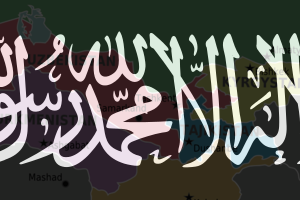Poisk-2016: CSTO stages intelligence and reconnaissance exercise
By Roger N. McDermott
May 31st, 2016, The CACI Analyst
Russia’s Armed Forces are conducting a series of exercises in Central Asia ostensibly designed to reassure regional allies that Moscow will assist in the face of an insurgency or incursion led by the Taliban or the terrorist organization calling itself the Islamic State (ISIS). However, these exercises are increasingly demonstrating the Kremlin’s intention to reassert Russia’s security role in Central Asia, while some features of such military exercises are also betraying increasingly sophisticated Russian technology and warfare capabilities, and consequently a widening gap with the country’s allies in the Collective Security Treaty Organization (CSTO).
The IMU is extinct: what next for Central Asia's jihadis?
By Jacob Zenn
May 3rd, 2016, The CACI Analyst
For more than a decade after the September 11, 2001 attacks in the U.S., the Islamic Movement of Uzbekistan (IMU) was the “bogeyman” of Central Asian militancy. It was the most well-known militant group in Central Asia and abroad, even though it was in exile in Afghanistan and Pakistan under the protection of the Taliban and al-Qaeda. Years of drone strikes and counter-insurgency operations failed to eliminate the IMU. Ironically, however, it was neither the U.S. nor coalition forces that destroyed the IMU. Rather, it was the Taliban who liquidated the IMU in late 2015 as punishment for its “betrayal” of the Taliban (and al-Qaeda) by pledging loyalty to Abu Bakr Al-Baghdadi, leader of the terrorist organization calling itself the Islamic State (ISIS). This will change the nature of the militant threat to Central Asia and force a reconsideration of Uzbekistan’s counter-extremism measures.
Russia's new gambit: sharing intelligence with the Taliban
By Stephen Blank
March 15th, 2016, The CACI Analyst
For years, Moscow has fulminated against the Taliban as a terrorist force that represented a threat not only to Afghanistan’s security but also to Central Asia and even to Russia itself. Yet news surfaced in December that Russia is sharing intelligence with the Taliban and apparently has been in discussions with it since 2013. According to U.S. intelligence sources, these discussions have also been accompanied by weapons transfers. Thus, while Russia is constantly, along with Central Asian leaders, playing up the ISIS threat and selling weapons to the Afghan government, it also shares intelligence and possibly sells weapons to its Taliban adversaries. These contradictions expose some of the problems in Russia’s regional policies in Central Asia and in its approach to terrorism.
The battle for Kunduz and its repercussions
By Stephen Blank
October 22nd, 2015, The CACI Analyst
On October 13, 2015, the Taliban announced its withdrawal from the major Afghan city of Kunduz that it had captured earlier. A counterattack by the Afghan Army and the ISAF alliance’s air power reversed the Taliban’s earlier victory and forced them out of the city. Nevertheless, this battle cannot be considered a victory for the Afghan government or for ISAF, and its repercussions are wide-ranging. Almost immediately after the Taliban withdrawal, President Obama ended his long review of U.S. strategy and policy in Afghanistan by announcing that 5,500 U.S. forces would stay through 2017, i.e. into the next administration, to ensure the continuing stabilization of Afghanistan.
Islamic State in Central Asia: threat or opportunity
By Charlie Smith (08/07/2015 issue of the CACI Analyst)
Central Asia is a key region that many believe has fallen into the crosshairs of the terrorist group calling itself the Islamic State (ISIS). Local governments are gravely concerned about returning fighters and possible ISIS infiltration in the region, and foreign powers, especially neighboring Russia and China, have expressed their deep concerns. This grim picture, however, obscures a more complex, and perhaps more accurate, story. Might the specter of ISIS have less to do with its on-the-ground ability to destabilize the region and more to do with the geopolitical concerns of those who are stating these threats?








